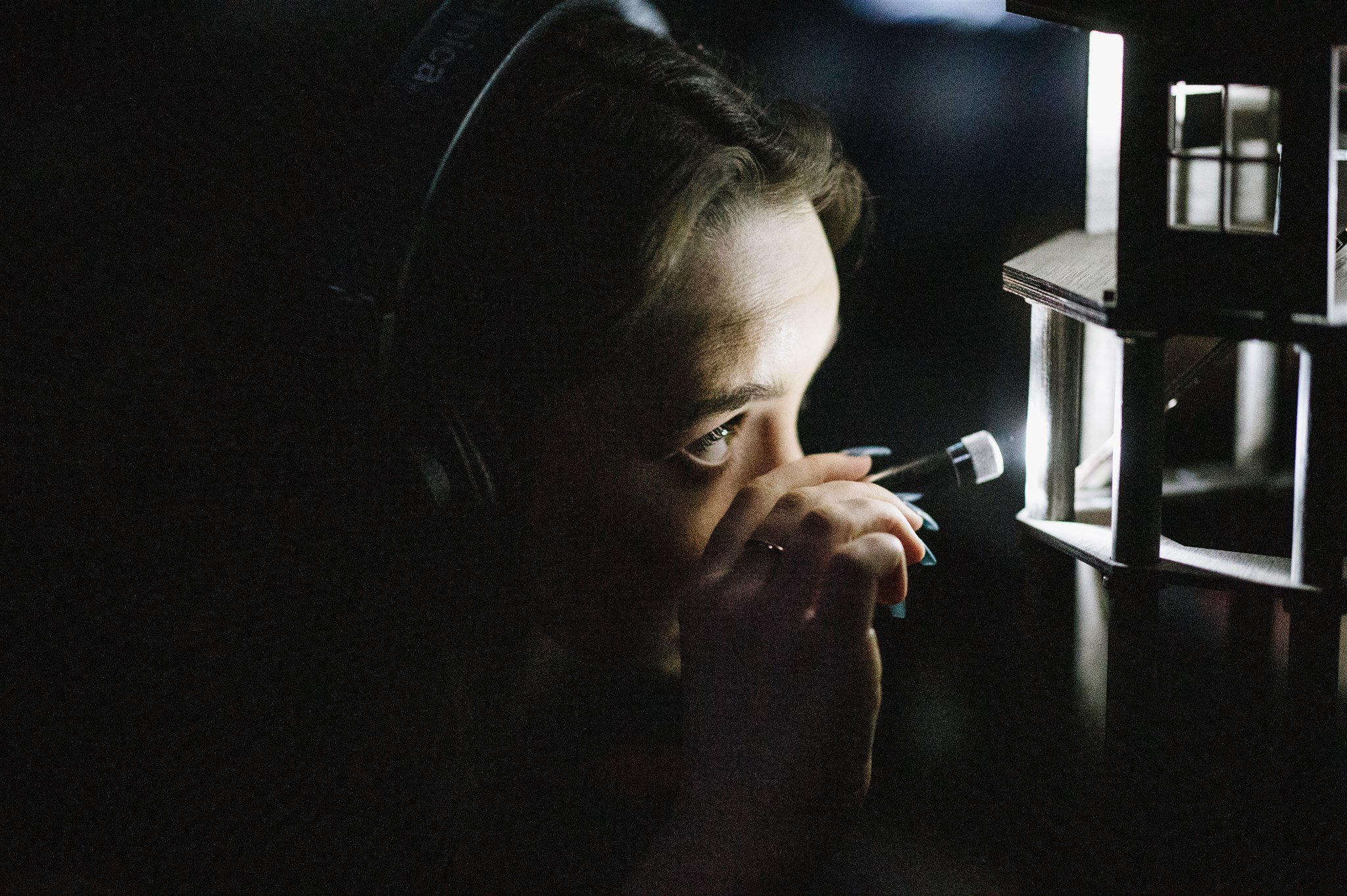Adrift | Counterpilot
All images: Morgan Roberts
Sometimes, a performance makes you angry.
Sometimes, that’s not really about the performance.
When I left Counterpilot’s Adrift, I was irritated. I told myself it was because I disagreed with the work’s premise. I told myself it was a work of hypocrisy and cynicism. A little later, I realised that wasn’t really it.
I wasn’t irritated because of some moral indignation. I was irritated because Adrift hit me with a truth that I find uncomfortable. Most annoyingly, it hit me with a truth I need to learn to accept.
Even prior to the formation of Counterpilot, current leader of the Meanjin-based creative ensemble Nathan Sibthorpe has been fascinated by the complexity of cooperation.
Sibthorpe’s Some Dumb Play, an early experiment in the technology-aided audience-interaction complexities Counterpilot would later bring to more vivid life, saw audiences invited to vote on every plot point in a play.
Later, Counterpilot works Truthmachine and Crunch Time had audiences confronting (among other things) how much they can trust each other and democratic processes. Often, these works would include some manner of chaos and breakdown.
‘How do we ever get anything done?’ Sibthorpe seemed to be asking, at times.
Adrift, from my limited critical perspective, feels like a rebuke and an answer to Sibthorpe’s previous fascinations.
‘Together’, it says. ‘We will only ever do it together.’
‘Because, we just can’t do it alone.’
This is why Adrift got under my skin.
I grew up in rural Australia with a complicated mix of Irish-Catholic stoicism and white Australian entitlement. In big and small ways, I learned that to be self-sufficient was essential to both personal dignity and inevitable survival. You had to be strong enough to go it alone.
All images: Morgan Roberts
Adrift, in big and small ways, reminds its audiences that such ideas are nonsense. It is both our fate and our privilege to live our lives in communion with others. It’s what makes it all work.
Which is not to say that I found the actual experience of Adrift to be wholly pleasant or unpleasant.
It uses a lot of stylistic approaches that I find increasingly tired (e.g. interactive theatre works in overwhelmingly dark rooms; pseudo-bureaucratic and vaguely ominous voiceovers) and seems to cram in more ideas than it really needs.
At various points, I wondered if Adrift would have been substantially improved by simply letting some of its ideas breathe in less grandiose surrounds. If, instead of being sequestered in the darkness and bombarded with different threads, I could just sit with one of its many ideas.
However, there were also moments where I found myself uniquely in awe of the basic human ability to connect and create. At one point, I was watching a story unfold in front of me that I was actively helping to tell with tiny little puppets and I still found myself utterly enthralled.
Whatever your preferences in terms of taste or philosophy, that’s a heck of an impressive magic trick. I was just following instructions over a set of headphones and working with someone I’d never met (listening to their own headphones) and I was left amazed by the story of our efforts.
In its broadest terms, a review is still generally thought of in terms of good and bad. On some level, we’re expected to weigh the good against the bad to find some clear recommendation. Adrift isn’t that kind of work. It wasn’t that kind of experience.
There were things about Adrift I really enjoyed. There were things about Adrift that I found pretty damn dull.
But, if we think in terms of pure impact?
In terms of that basic audience question of - well, what did it matter?
It’s hard for me not to call Adrift some kind of masterpiece.
‘Adrift’ plays 11-28 September at Metro Arts, West End as part of the 2024 Brisbane Festival.
All images: Morgan Roberts


